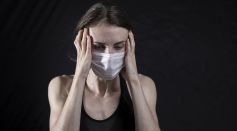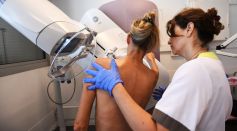MEDICINE & HEALTH
World Stroke Day 2021 Celebrates New Treatments, Healthy Lifestyle to Avoid the Second Leading Cause of Death
Legionnaire’s Disease Detected in Beaverton; 4 People Hospitalized After Confirmation of Several Cases in the Area
Riverside County Confirms First Case of Hantavirus; Patient Now in Recovery

England to Legalize Vaping Soon? Doctors to Prescribe E-Cigarettes to Save Lives, A First in the World

Mood Disorders Increase Risk of Severe COVID-19 Which Leads to Hospitalizations, CDC Announces

Detect Alarming Cholesterol Levels in Legs Through Toenails

How to Spot A Narcissist Partner? Check Out These Key Signs Of Narcissism and Tips To Get Out of the Toxic Relationship

Unexplained Tingling and Numbing on Your Feet Might Be Due to Small Fiber Neuropathy; What Is This?

Breast Cancer Vaccine for Triple-Negative Result: First-of-Its-Kind Human Trial Set for Launch

Several Famous Fast-Food Items Have Industrial Plastic Chemicals, Experts Warn; Should We Worry?

Green Tea Increases Oxidative Stress But Leads to Longer Life and Better Fitness
Carbon Nanotubes: Novel Sensor That Can Detect SARS-CoV-2 Developed; Results in Just a Few Minutes
ADHD Awareness Month: Dogs, Like Humans, Can Have It Too; Here Are Some Signs and Symptoms to Look Out For

Weight Loss Drink for Breakfast: Here Are Your Top 3 Options to Shed the Extra Pounds
Most Popular

NASA Reveals an Astronaut Was Medically Evacuated From the ISS for the First Time After a Non-Emergency Health Scare

How the Immune System Fights Diseases: Antibodies, Vaccines & Lasting Protection

Why Biodiversity Matters More Than We Think: How Species, Ecosystems, and Conservation Shape Our Planet

Sun Reaches Solar Maximum: What the Intensifying 11-Year Solar Cycle Means for Earth





